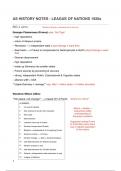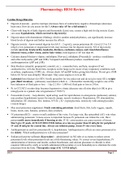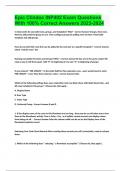Summary
Summary League of Nations in the 1920s
- Course
- Institution
The notes go through the aims of the Big Four, Treaty of Versailles, reactions to the treaty, other treaties and successor states, changing relations 1920-29, organisation and covenant of the League of Nations, successes and failures, strengths and weaknesses.
[Show more]






